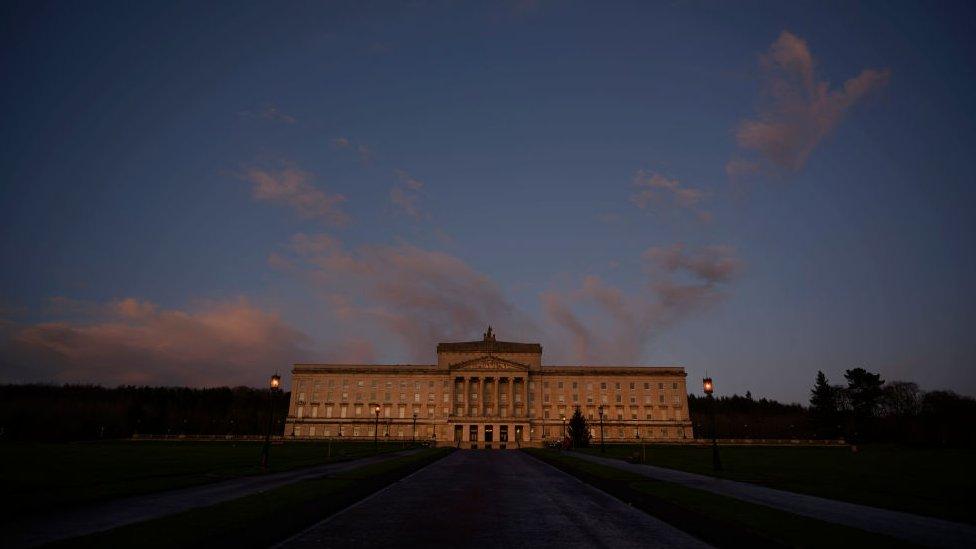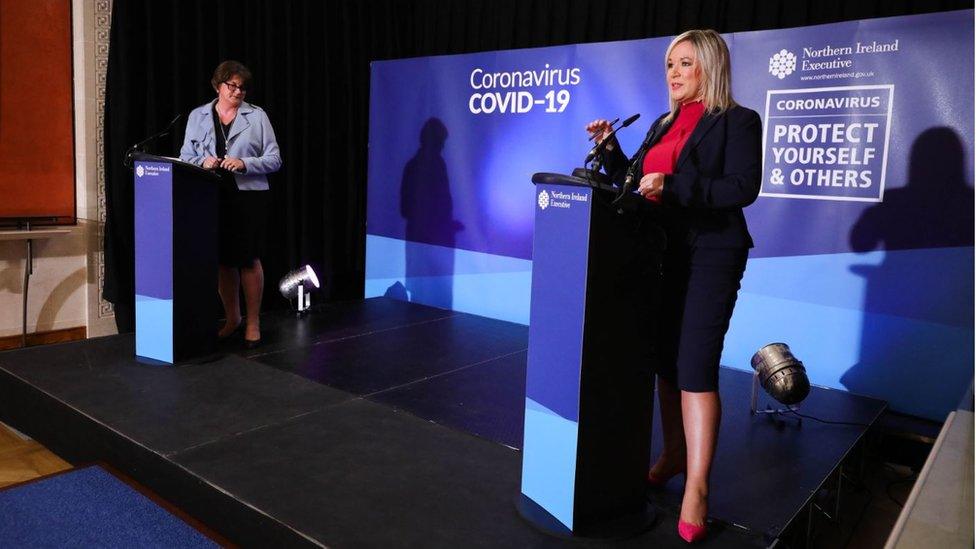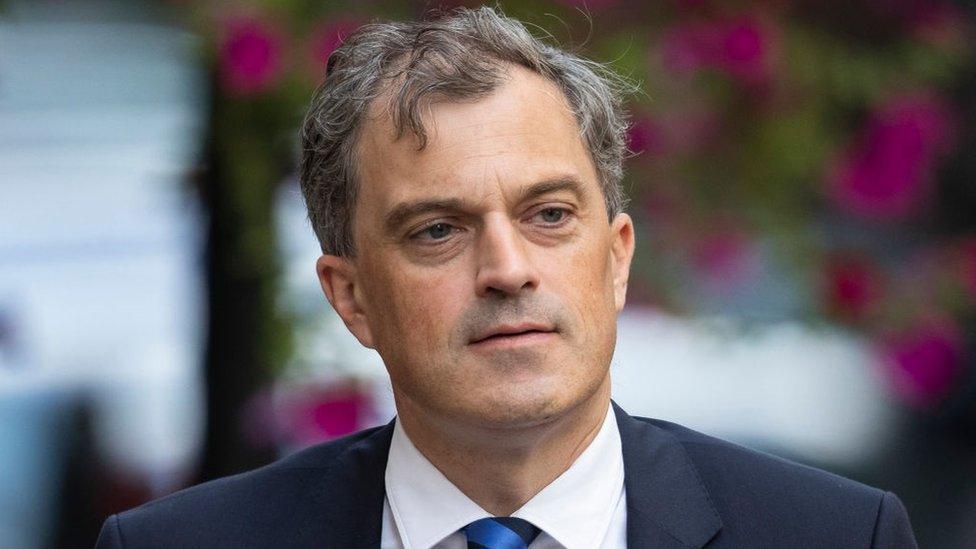The pension, the politics and the pledge
- Published

The delay in implementing the payments to Troubles victims has again exposed rifts between the two main Stormont parties
Was it naive of the Northern Ireland Office to think Sinn Féin would meekly co-operate in the administration of a pension scheme which rewrites the previous definition of a Troubles victim?
Answer - almost certainly yes.
You can make a good case for the former Secretary of State Julian Smith cutting through the Gordian knot regarding who should qualify for Troubles acknowledgement payments.
The argument over eligibility and the exclusion of perpetrators has gone on far too long.
It has delayed richly-deserved support for people still suffering trauma and disability as a result of atrocities which took place decades ago.
However the knot wasn't severed cleanly enough.
The legislation passed by Westminster still required the first and deputy first ministers to designate a department which would then set up a board to oversee those payments.
Further difficulties ahead?
That step in the process required republicans to sublimate their anger over what they regard as discrimination into the creation of a scheme which, like the Historical Abuse Redress payments, enjoys enormous public support and sympathy.
Instead it has provided Sinn Féin with a potent means of exerting pressure on the UK government, frustrating payments to which the Troubles victims are legally entitled.
The North Belfast MLA and former IRA leader Gerry Kelly reckons the way the scheme is constructed could rule out not just republican and loyalist paramilitaries injured by their own hand (in what used to be described insensitively as an "own goal") but also a much larger number of former prisoners who served relatively short sentences.
The Secretary of State Brandon Lewis disputes this, insisting the board in charge of the scheme will independently assess such cases.

Might legacy issues threaten the new-found unity between Arlene Foster and Michelle O'Neill?
A document seen by my colleague Julian O'Neill, referring to relevant convictions as carrying a sentence of "longer than 30 months", adds weight to Sinn Féin's argument.
However it is hard to be sure exactly how the Independent Board will interpret this when it gets up and running.
What is clear is that no amount of adjectives pronouncing the stand-off to be "grotesque", "shameful" or "dreadful" will sort this out.
Instead it looks like it will require decisive political and legal action.
The emphasis has been on coronavirus in recent weeks (Arlene Foster repeated the sentiment that the battle against the virus has brought her and Michelle O'Neill closer together on BBC Radio 4's Political Thinking podcast).
But the struggle over the legacy of the Troubles could lead to further difficulties in the months ahead.
In the Daily Telegraph, the Armed Forces Minister Johnny Mercer this week wrote about the Overseas Operations Bill which the government says will put an end to "vexatious claims and the cycle of reinvestigations against troops".

Mr Mercer added he had secured "important guarantees of equal treatment for NI Veterans who I will not leave behind. This Government will lance this boil".
That pledge may go down well with former soldiers, but it will cause consternation to those campaigning on behalf of victims of security force violence. So this will be one to watch.
On Inside Politics Q&A on Monday we shall be visiting West Belfast.
My panel will be Sinn Féin MLA Pat Sheehan, People Before Profit's Gerry Carroll and the Irish News Security Correspondent Allison Morris.
You can send us any questions you want to raise by emailing Inside.Politics@bbc.co.uk or tweet us using our hashtag #bbcip
- Published3 June 2020

- Published1 February 2020

